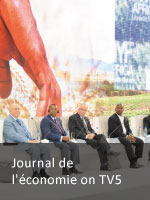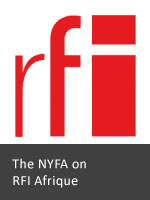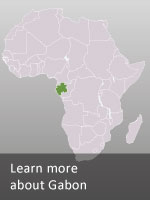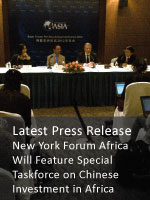NYFA G20 Declaration
On the eve of the G20 Summit in Mexico and the Rio +20 Summit in Brazil, over 600 business, financial and political leaders met from June 8-10 in Libreville, Gabon at the first New York Forum Africa. In over 30 hours of debates and taskforces, the community of The New York Forum Africa discussed key issues for the continent, including the reality of the rise of Africa, the different business models that can thrive, regional integration, natural resources, agriculture, innovation and entrepreneurship, human capital, the relationships between Africa and the US and China, the energy equation, foreign investment, security and governance imperatives, and the role of Africa's next generation of political and business leaders and the diaspora.
Many specific ideas and initiatives germinated at The New York Forum Africa, but concrete proposals emerged from the community in five fundamental areas:
1. Small and medium enterprises. SMEs are the bedrock of thriving economies, and the key engine of job creation. Far more attention is required in most African countries on the role of SMEs and the entrepreneurs that create them.
- SMEs are the "missing middle" for financial institutions. New approaches and methods are needed for assessing credit.
- New, large-scale investments should have an allocation for investment in or business with SMEs.
- A specific crowdsourced funding site for African SMEs should be created.
- Just as cities have "sister cities" around the world, large companies should have "sister company" programs, to mentor and forge relationships with SMEs.
- An SME African Cup of Nations should be created, to recognize and celebrate the achievements of SMEs.
- Training and mentorship schemes for SMEs must be created and promoted.
2. Regional integration. Everyone recognizes the importance of stronger regional integration, to provide a more unified, clearer voice for African interests, to encourage the free flow of capital, to open labor markets, and to harmonize and lower regulatory barriers. But progress remains elusive in most of the continent.
- Develop regional infrastructure projects that will both create stronger frameworks for growth and help bind countries to each other.
- Speed up plans to make visas easier to obtain, particularly for citizens of other African nations.
- Open up competition in airlines, to improve the availability and cost of travel within Africa.
- Create Africa's first student exchange program, along the lines of Europe's Erasmus, to foster socio-cultural integration.
- Involve private sector leaders to propose plans for common reductions of regulatory and trade barriers.
3. Africa and the rest of the world. The growth of Africa's economies demands a larger voice for the continent in the key political and economic institutions. At the same time, Africa itself needs to do a better job of marketing itself.
- Increase outreach with the message that Africa is open for business on its own terms. Business can find opportunity and partners in Africa.
- Individual countries need to continue efforts to establish their identities for global investors, but there is an opening for Africa to market itself collectively, particularly for tourism.
- Establish a CEO welcome program where global CEOs are invited to live with and shadow an African counterpart for a few days and vice versa.
4. Public/private cooperation and effectiveness. There is a burgeoning private sector in much of Africa, but all too often it is shut out of political discussions. The state needs to play a continuing strategic role, but the private sector needs to be embraced in an inclusive partnership.
- Within countries, open, transparent business/government councils need to be established to ensure there is a channel for business' voice to be heard.
- More effective pan-African business leadership organizations need to emerge.
- Where instability and insecurity exists, government should recognize that the best partner for building confidence and security is the private sector.
- The urgent need is for larger numbers of competent technocrats, particularly in the public sector. Targeted training programs need to be established both locally and in partnership with globally recognized institutions.
- Business and government needs to work together on supply chains in many sectors. There is more room to source and manufacture in Africa, provided chains of supply and distribution can be established.
5. Sustainability. Africa has an opportunity to forge a different economic and environmental path from other parts of the world. Its tremendous renewable energy resources, particularly hydropower and solar power, must be a fundamental part of satisfying the continent's gap between supply and demand of energy. And sustainable visions will be needed as the pace and scale of urbanization continues.
- There are green technology opportunities for Africa to lead, not just to catch up.
- Africa's biggest cities should make a commitment to plant a tree in front of every public building.
- In agriculture, Africa needs to concentrate on local, sustainable models, rather than import the methods and norms of other regions.
- The global value chain in rural areas needs to be understood for agriculture to have its right place in rural economies.
Although these proposals indicate the enormous amount of work and effort that remains to be done, the overwhelming mood of The New York Forum Africa was optimistic and forward-looking. The community of The New York Forum Africa is highly motivated and determined both to grow with Africa's economies and to help lead and form that growth. It is also taking on the broader task of helping make their colleagues and friends in other parts of the world understand the extraordinary opportunities to be had in partnership with Africa today.























